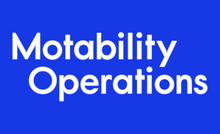Openness Research 2015
This research was undertaken to help increase the number of graduates who have a disability or long-term health condition successfully apply for graduate jobs.
The aim was to understand why disabled graduates are so reluctant to inform employers about their disability during the recruitment process, and to highlight what employers needed to be doing to encourage openness.
Key Findings
The research found that 76% of respondents stated that they were concerned about being open about their disability or long-term health condition with an employer. The greatest concern was the fear of being discriminated against.
However the research also found that 57% of respondents did recognise that there were benefits associated with being open and the greatest benefit was being able to be honest about their disability / long term health condition from the start of the process. They also recognised that being open would enable them to have the support / adjustments that they require and that they would be able to demonstrate their full potential during the recruitment process.
To address these concerns and to encourage applicants to be open about their disability employers need to articulate and promote the benefits of being open, and encourage applicants to inform them about their disability as early in the recruitment process as possible.
Employers need to make it clearer in their communications that students with disabilities will not be discriminated against, and that changes to the recruitment process can be made if required. One of the most effective ways of doing this is to profile those employees who have been open and who have benefited from being so.
The findings from this research are invaluable to employers wishing to attract talented individuals to their organisation and enabling them to demonstrate their potential during the recruitment process. Only by allowing this to happen will real progress be made in the recruitment of individuals with disabilities.













































